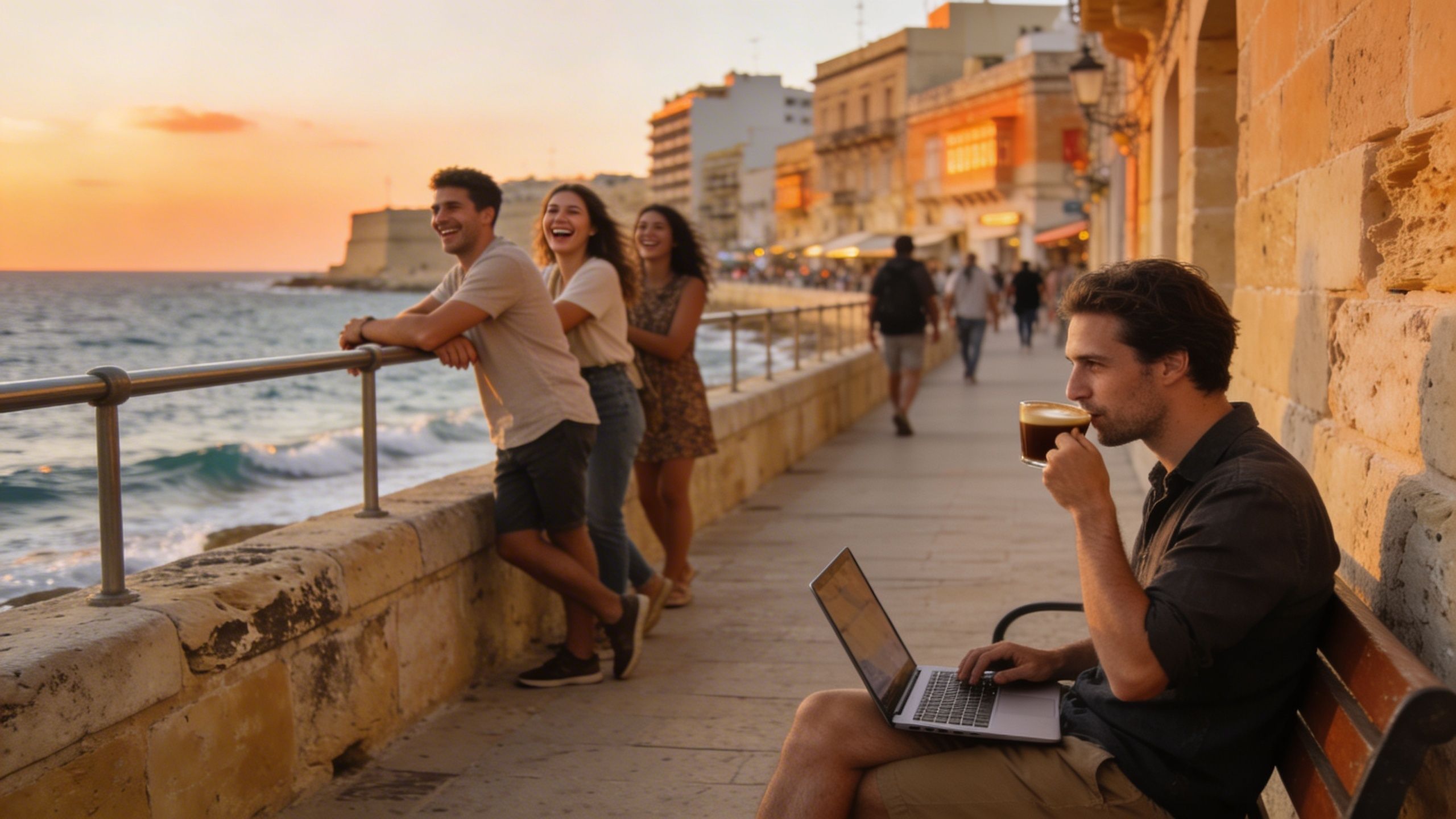France: Lifestyle Picks, Market Signals & Move‑Ready Steps
France mixes café culture, coast and mountains with a stabilising 2025 housing rebound—prioritise fibre, outdoor space and local experts to turn lifestyle dreams into a managed purchase.
Imagine sipping an espresso on a sunlit Parisian terrace, then heading to a bright coworking space with fibre‑fast internet. Or picture weekend escapes to the lavender fields of Provence or the sea breezes of Nice. France gives you rhythm: slow café mornings, lively market afternoons, and evenings that celebrate food, friends and place. For nomads craving strong coffee, stronger connections and reliable broadband, France feels like a lifetime of small adventures rolled into one address.
Living the France lifestyle

Daily life here is tactile. Cobblestone streets smell of fresh bread at 8am. Neighborhood boulangeries, corner cafés and weekly markets set the tempo. In cities you’ll find micro‑parks, affordable neighbourhood bistros and bakeries where staff know your order. On the coast it’s terraces and beachfront promenades; in mountain towns it’s après‑ski cafés and panoramic runs. That variety is why buyers choose France — you can design a life that’s urban, coastal or slow‑country, often within a few hours by train.
Neighborhood spotlight: Paris, Lyon, Nice
Paris is energy and history — arrondissement by arrondissement — with excellent coworking, culture and international schools but the highest price tags. Lyon blends gastronomy with a strong tech and startup scene, great for food lovers who want a slightly lower cost of living. Nice and the Côte d’Azur are about outdoor living, sunshine and a buoyant second‑home market. Recent notary data shows the market is heterogeneous: some cities and coastal areas are rebounding faster than the capital region, so location choice matters as much as property type.
Food, markets and social life
Weekends are market days: fishmongers in Marseille, flower stalls in Aix‑en‑Provence, cheese counters in Lyon. Cafés double as remote work hubs by day and intimate bars by night. Festivals—Fête de la Musique, regional wine fêtes and film weeks—animate towns seasonally. For a nomad, that means built‑in social calendars and easy ways to meet locals and other internationals without forcing it.
- Lifestyle highlights: Marche d’Aligre (Paris), Vieux‑Port fish market (Marseille), Croix‑Rousse food scene (Lyon), Promenade des Anglais walks (Nice), Luberon hilltop villages weekend escapes, local coworking hubs in major cities
Making the move: practical considerations

Dreams meet paperwork here. France’s housing market showed a modest rebound in early 2025, with quarter‑on‑quarter price gains and nearly 892,000 transactions over a recent 12‑month period — proof the market is active but uneven. That means good opportunities exist outside headline cities, and properties with outdoor space and solid internet are in demand among remote workers. Expect regional variation: coastal and Alpine resort markets can be seasonal, while mid‑sized cities sometimes give better value and steady year‑round life.
Property styles and remote work fit
Older city flats bring charm and location, but check for insulation, elevator access and whether ceiling heights translate into workable home offices. Suburban houses and Provençal villas offer outdoor rooms and quiet work terraces, ideal for long‑stays. In mountain and Riviera resorts, luxury chalets and apartments can be pricey but rent well seasonally—useful if you plan short‑term lets. Prioritise fibre availability, a quiet corner for video calls and battery‑backup on long‑haul flights.
- How local experts speed your lifestyle move: 1. Match neighbourhood character to your daily routine (coworking, schools, nightlife). 2. Vet renovation needs and energy performance (diagnostics are mandatory). 3. Navigate fiscal steps: taxes, notary fees and residency implications. 4. Source reliable property managers for rentals when you travel. 5. Spot off‑market gems and negotiate French offer customs.
Insider knowledge: what expats wish they’d known
Real talk: bureaucracy is real but manageable. Residency and visa rules depend on nationality and intent; buying property doesn’t automatically grant residency. Taxes—income tax on rentals, wealth taxes in some cases, plus local taxe foncière and taxe d’habitation nuances—need clear planning. Use a bilingual notary and an accountant experienced with cross‑border filings; they’ll save time and money and protect your lifestyle plans.
Want this life? Start small: rent in your target neighbourhood for a month, test commute and coworking spots, meet locals at markets and meetups. When ready, work with an agency that understands nomad priorities — fast internet, flexible rental management, and neighbourhood community — and schedule a focused buying trip. With the right local team, the move feels less like a legal slog and more like a series of delightful discoveries.
Swedish, relocated to Marbella in 2018 to chase sun and property freedom. Focus on legal navigation and tax for Nordic buyers.


